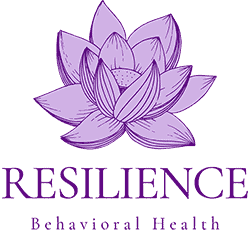Bipolar Disorder and Addiction: Understanding the Complex Connection
Introduction
Picture this: you’re driving a car with two engines, each operating independently and affecting one another’s performance. That’s pretty much how it is when someone grapples with both bipolar disorder and addiction. Bipolar disorder, a mental health condition marked by mood swings, can significantly influence an individual’s likelihood of developing addiction. Similarly, substance abuse can worsen bipolar symptoms, creating a vicious cycle that’s hard to break.
Understanding Bipolar Disorder
Bipolar disorder comes in different flavors, much like ice cream. We have Type I, where mood swings are as wild as a roller coaster, and Type II, which is like a less intense version but still pretty bumpy. Identifying bipolar disorder can be tricky, though. Sometimes, it hides behind other symptoms or behaviors, and patients may end up seeking help for addiction issues before realizing they have an underlying mood disorder.
I had a patient, let’s call her Sarah, who struggled with addiction to cope with her intense mood swings. For years, she had no clue she had bipolar disorder. It was only when she sought help for her drug dependency that we connected the dots.
The Relationship between Bipolar Disorder and Addiction
Now, you might wonder why these two seem to be best buddies. Well, it’s like they feed off each other’s energy. When bipolar disorder strikes, people may turn to substances to numb their pain or escape reality. Drugs and alcohol can provide temporary relief, but they also mess with the brain’s chemistry, making bipolar symptoms even worse when the high wears off. It’s like pouring gasoline on a fire – a real recipe for disaster.
Unraveling the Neurobiological Links
Bear with me as we get a bit technical. The brain’s chemistry plays a massive role in this dual diagnosis tango. You see, neurotransmitters are like the messengers of the brain, and they are involved in both bipolar disorder and addiction. It’s as if these two conditions have a secret meeting in the brain, plotting their next move together.
When someone experiences a manic or depressive episode due to bipolar disorder, it affects the brain’s reward system, which is also at play during substance abuse. So, when substances flood the brain with pleasure-inducing chemicals, it’s no wonder why those with bipolar disorder might be more susceptible to addiction’s allure.
Diagnosing Bipolar Disorder and Co-occurring Addiction
Diagnosis can be a tricky beast, like trying to find your keys in the dark. People may seek help for their addiction struggles, but underlying bipolar symptoms could go unnoticed, and vice versa. As a doctor, my detective skills come into play during assessments. We need to consider the whole picture – a person’s medical history, behavior patterns, and any potential red flags.
For example, my patient, John, initially came to me seeking help for his alcohol addiction. However, as we delved into his medical history, it became evident that he had been grappling with mood swings for years. His self-medicating with alcohol only made matters worse, leading to a roller coaster of highs and lows.
Integrated Treatment Approaches
Okay, so here’s the good news – treatment is available, and it works! But there’s no one-size-fits-all approach. Each person’s journey is unique, like a snowflake. An integrated treatment plan is like a personalized roadmap to recovery, tailored to address both bipolar disorder and addiction.
This means utilizing evidence-based treatments for bipolar disorder, such as therapy and medication management, alongside addiction treatment programs. A little bit of this, a little bit of that – the perfect recipe for success.
Dual Diagnosis Rehab Programs
Imagine being on a team with two coaches – one for bipolar disorder and one for addiction. Well, that’s what a dual diagnosis rehab program does! These specialized programs are like superheroes, providing comprehensive care and guidance for those dealing with both conditions.
Here, patients learn valuable skills to manage bipolar symptoms and cope with triggers that might lead to addiction relapse. It’s like arming them with superpowers to face life’s challenges head-on!
Support Systems for Patients and Families
When you’re on a roller coaster, it helps to have someone holding your hand, right? Support systems are like seatbelts on the ride of recovery. Patients need a robust network of friends, family, and support groups who understand what they’re going through.
Families play a crucial role too! Just like a GPS, they can help navigate the journey to recovery by learning about bipolar disorder and addiction, being there for their loved ones, and seeking their own support when needed.
Recovery and Long-Term Management
Okay, we’ve reached the end of the ride, but the journey doesn’t stop here. Recovery is like a marathon, not a sprint. Managing bipolar disorder and addiction long-term requires commitment and dedication.
Patients must learn to identify warning signs and triggers, develop coping mechanisms, and maintain a healthy lifestyle. With the right tools and mindset, they can lead fulfilling lives in recovery, free from the clutches of bipolar disorder and addiction.
Conclusion
As we wrap up, I hope you’ve gained a better understanding of the intricate dance between bipolar disorder and addiction. Remember, there is hope, and recovery is possible. If you or someone you know is struggling with this dual diagnosis, don’t hesitate to seek help from professionals who can provide the support and guidance needed for a brighter future.
Take care, and remember, you’re never alone in this journey!


